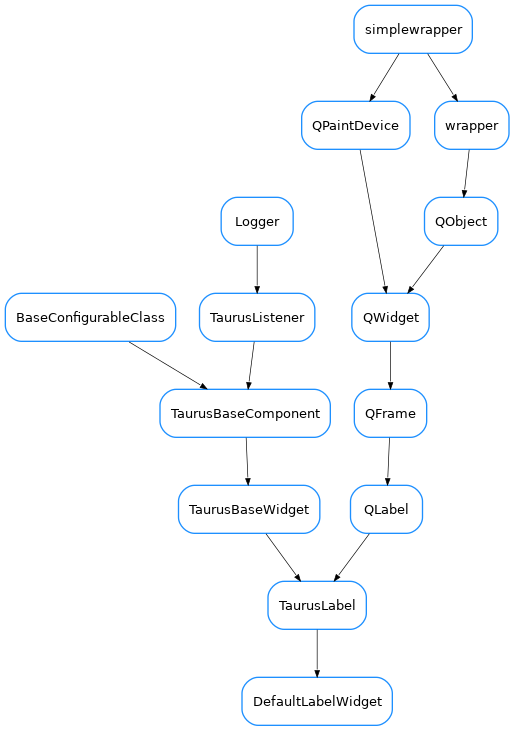DefaultLabelWidget

- class DefaultLabelWidget(*args)[source]
The base class used by default for showing the label of a TaurusValue.
Note
It only makes sense to use this class as a part of a TaurusValue, since it assumes that it can get a reference to a TaurusValue via the
getTaurusValueBuddy()memberImport from
taurus.qt.qtgui.panelas:from taurus.qt.qtgui.panel import DefaultLabelWidget
- contextMenuEvent(event)[source]
The label widget will be used for handling the actions of the whole TaurusValue
see
QWidget.contextMenuEvent()
- getDisplayValue(cache=True, fragmentName=None, **kwargs)[source]
Reimplementation of getDisplayValue
- getModelMimeData()[source]
reimplemented to use the taurusValueBuddy model instead of its own model
- classmethod getQtDesignerPluginInfo()[source]
Returns pertinent information in order to be able to build a valid QtDesigner widget plugin.
The dictionary returned by this method should contain at least the following keys and values:
‘module’ : a string representing the full python module name (ex.: ‘taurus.qt.qtgui.base’)
‘icon’ : a string representing valid resource icon (ex.: ‘designer:combobox.png’)
- ‘container’a bool telling if this widget is a container widget or
not.
This default implementation returns the following dictionary:
{ 'group' : 'Taurus [Unclassified]', 'icon' : 'logos:taurus.png', 'container' : False }
- Returns:
a map with pertinent designer information
- Return type:
- setModel(model, **kwargs)[source]
Sets/unsets the model name for the given key. If key is MLIST, a model is set for each name in the model sequence, new model keys are automatically added to the object’s
modelListattribute and the corresponding models are attached using those keys. The new keys are of the form(MLIST, i)whereiis the index of the corresponding model name in the model sequence.